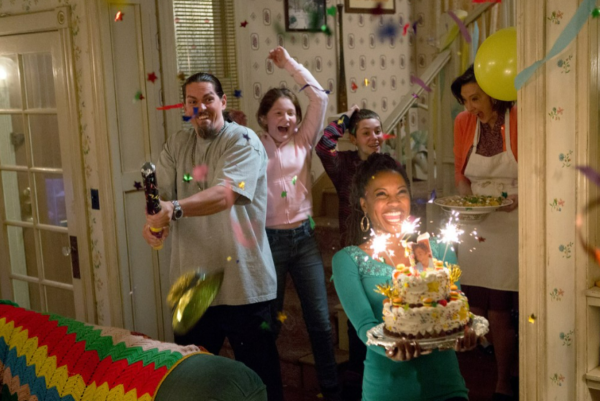Getting Weird
Instead of ‘getting weird’ this week, I get real about living with mental illness
More stories from Alyssa Anderson
Don’t panic. I promise I will return to my usual spooky content next week. But, for this week, I decided to take things in a new direction. It’s my column, after all, so I can do whatever I want, right?
As I was preparing to write this week’s column, something quite strange and unprecedented happened to me: I simply didn’t feel like writing about a conspiracy. Usually, researching secret mass graves on an island in New York (yes, I will come back to this eventually) would have sent me into an investigative frenzy, but not this week.
There I was in front of my laptop, a whole world of strange and unusual information at my fingertips, and I didn’t have an ounce of curiosity in my bones. In a somewhat panicked state, I tried to wrack my brain for any inspiration I could find.
After a long while of sitting and thinking, my head started to hurt. Clearly, I had a case of writer’s block – a condition I am, thankfully, not too familiar with. I took a step back and wondered what in the world I was going to write, when it came to me.
My middle school English teacher once told me to “write what you know” and I decided to take her advice and do just that. This week, I chose to write about someone I know very well: Me.
As some of you may (or, in most cases, may not) know, I was diagnosed with bipolar disorder at the end of last year. I have been living with mental illness for all my life — I have had anxiety as long as I can remember — but this diagnosis really shook things up for me.
When I first heard my diagnosis, I thought it was the end of the world. Yet, as it turns out, getting diagnosed as bipolar has been one of the best things to happen to me.
According to the National Institute of Mental Health, “Bipolar disorder, also known as manic-depressive illness, is a brain disorder that causes unusual shifts in mood, energy, activity levels and the ability to carry out day-to-day tasks.”
Contrary to popular belief, those with bipolar disorder are on a spectrum ranging from mild to severe impairments in one’s daily life.
I was diagnosed with Bipolar II, a form of the illness that is markedly less severe than Bipolar I, but still has a huge impact on my life.
From what my psychiatrist told me, Bipolar disorder has (as you may have guessed by the name) two very different sides: mania and depression. While all Bipolar individuals experience depressive episodes of varying degrees, folks with Bipolar I experience episodes of mania far more severe than someone, like me, with Bipolar II.
Before I was properly treated and medicated (thank you, Lamictal) I experienced uncontrollable mood swings. Even though I’m in treatment, I still experience symptoms. I’m just better able to identify and control them.
Some days, I would wake up thinking I could accomplish anything I put my mind to. I felt I was invincible. On days like these, I was having manic episodes. My thoughts would race, I wouldn’t sleep and I would follow any impulse that came to me. I would spend money I didn’t have, drink too much and talk anyone’s ear off who would listen. On these days, I felt amazing.
Alas, those days did not last.
After periods of mania come periods of depression. The strangest thing about having a manic episode is that, when I’m in the middle of one, I have no idea I’m having an episode at all. I just feel great. Depressive episodes, on the other hand, are a whole new ball game.
For me, depressive episodes are easy to pinpoint. They hit me like a wall of bricks.
Before I was diagnosed, my depressive states could last days, weeks and sometimes months. These episodes consisted of laying in bed, missing class, ignoring everything and everyone and frequent thoughts of suicide. Nothing seemed real and nothing mattered.
Eventually, whether manic or depressed, I’d just snap back to normal like nothing ever happened and carry on with real life.
Being diagnosed, as I said before, is the best thing to happen to me. Instead of feeling crazy and out of control, I understand that my mood swings are caused by my flawed brain chemistry.
Nowadays, when I slip into mania or depression, it doesn’t take long for me to realize that things have gone array.
Though we live in an age where mental health awareness has become a priority, people with mental illnesses still face harmful stigma from people who don’t understand us. Despite what many think, we are not crazy. We are not dangerous, unable to function or destined to live on the streets.
Just how diabetics need insulin to survive, people like me need a boost of the brain chemicals most people take for granted. Why should we be ashamed? I’m not.
As my close friends know, I am pretty open when it comes to my mental health. After a lifetime of hiding my pain, I find it helps to be upfront with the people around me. Although the meds and therapy have helped immensely, expressing my thoughts and emotions without shame has made my illness far easier to deal with.
Trust me, mental illness is not the end of the road. Find someone you trust and talk about how you feel – it only gets easier from there. Take it from someone who knows.
That’s all for now, dear readers. Come back next week for our regularly scheduled programming.
Anderson can be reached at [email protected].











